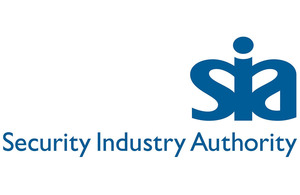Scarborough security boss ordered to pay a £164,000 confiscation order from proceeds of crime
Press release
Christopher Browne of Scarborough was ordered to pay a £164,000 confiscation order within three months.

On Tuesday 5 July, Christopher Browne of Scarborough was ordered by York Crown Court to pay a £164,000 Confiscation Order within three months or face an 18-month jail sentence following a Proceeds of Crime action. The amount is the realisable funds from the sale of his Scarborough house which is currently subject to a Proceeds of Crime Act Restraint Order. The court also sentenced him to a £200 fine and a £20 victim surcharge.
Tuesday’s sentencing follows Browne’s conviction on 9 February 2021 at Scarborough Magistrates’ Court for working as an unlicensed company director of Scarborough based, Coastal Security Ltd. The prosecution was brought by the Security Industry Authority (SIA).
Browne held a valid SIA security guard licence up until 15 February 2016. After his licence expired, he refused to apply for a new security guard licence even after repeated attempts by the SIA to help him to engage with the SIA’s licensing process. He continued to work as an unlicensed director of a company supplying security for more than four and half years between 15 February 2016 and 21 August 2020.
He responded to a request for information when he gave a full and frank account during an interview under caution on 20 August 2020 and admitted that he had knowingly acted as a director of a company supplying private security industry services without an SIA licence.
Browne was a director of Scarborough’s Coastal Security Ltd for 21 years from December 2000. The business supplied CCTV, security equipment as well as security guards but the company has been put into liquidation during the last two months.
Jenny Hart, one of the SIA’s Criminal Investigation Managers, said the court order reflects the seriousness of Browne’s failings to engage with the SIA and get licensed.
We did everything possible to engage with Mr Browne, but he failed to renew and apply for a licence to operate. He was negligent and put the public at risk as he refused to get licensed. His non-compliance has exacerbated the situation which could have easily been avoided. The purpose of the SIA’s licensing regime is to protect the public. He has incurred a significant court order which reflects four years’ worth of greed. His business has subsequently been liquidated and it has cost him deeply.
Notes to editors:
-
The offence relating to the Private Security Industry Act 2001 that is mentioned above is as follows: Section 3 – unlicensed security operative. By law, security operatives working under contract must hold and display a valid SIA licence.
-
The Private Security Industry Act 2001 is available online.
-
The Proceeds of Crime Act (POCA) sets out the legislative scheme for the recovery of criminal assets with criminal confiscation being the most commonly used power. Confiscation occurs after a conviction has taken place.
-
If a person has a POCA Order against them they have to pay it regardless of if they serve a jail sentence.
-
Information about SIA enforcement and penalties can be found on GOV.UK.
Further information:
- The Security Industry Authority is the organisation responsible for regulating the private security industry in the United Kingdom, reporting to the Home Secretary under the terms of the Private Security Industry Act 2001. The SIA’s main duties are the compulsory licensing of individuals undertaking designated activities and managing the voluntary Approved Contractor Scheme.
- For further information about the Security Industry Authority or to sign up for email updates visit: www.gov.uk/sia. The SIA is also on LinkedIn Facebook (Security Industry Authority) and Twitter (@SIAuk).
Published 8 July 2022


